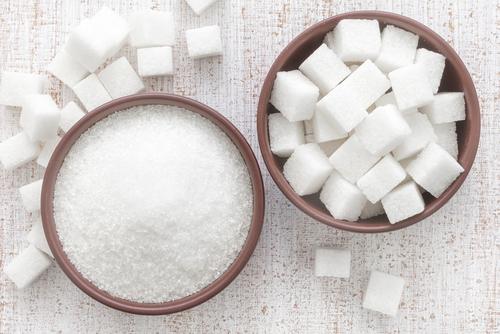So reducing sugar-sweetened beverages and overall sugar consumption should decrease the obesity surge, right? Or at least that's what those who are advocating taxes on sugar-sweetened beverages are telling us. Probably soon they'll be promoting taxes on all things sugary — especially those containing the dreaded added sugars. But so far, there doesn't seem to be any real evidence that such taxes, indeed such a lowering of sugary foods and drinks will do anything about the obesity problem.
Well, don't look here for such support‚ especially since I just read a new study from Australia that found that when sugar consumption decreased, obesity increased. This surprising correlation supports the position we've taken for years — that demonizing one dietary ingredient or food doesn't necessarily translate into the desired outcome. But on to the story.
Dr. Jennie C. Brand-Miller from the University of Sydney, Australia and dietitian Alan W. Barclay investigated the trends in the availability of sugars, changes in the intake of total sugars, added sugars and sugar-sweetened beverages (SSB) in Australia. These data were compared with trends in obesity in both adults and children.
The authors used data from the Food and Agriculture Organization of the UN, the Australian government, and published data from academic and food industry sources. They found a downward trend in the per capita availability of sugars and sweeteners between 1980 and 2011. There was also an 18 percent decline in the intake of added sugars by men (but not by women) between 1995 and 2011, based on food intake surveys. Children between the ages of 2 and 18 also reduced intake of those items by anywhere from 26 to 34 percent over the same period. And the proportion of total energy consumed from SSB (including juices) fell by 15 percent in adults and by 40 percent in youths and children.
Correlated with the decline in SSBs, the authors noted that in Australia over 50 percent of carbonated beverages sold are sweetened with artificial (intense) sweeteners, which is considerably higher than in the US (20 percent) and 29 percent in the UK. It's important to note that the estimates of intake based on sugar availability likely overestimate the actual consumption, as some losses occur as foods are prepared and consumed. But these overestimates apply to data obtained at all time points.
With respect to obesity, between the national surveys in 1995 and 2011- 2012, Australian adult men and women gained an average of 8 and 9 pounds, respectively. And they found that the prevalence of overweight and obesity in 2 to 17 year-olds increased from 21 to 25 percent between 1995 and 2011-2012. Overall, the trends certainly contrast as shown in the graph below.

The authors conclude that "there may be unintended consequences of a singular focus on refined sugars and SSBs. " We couldn't agree more.




